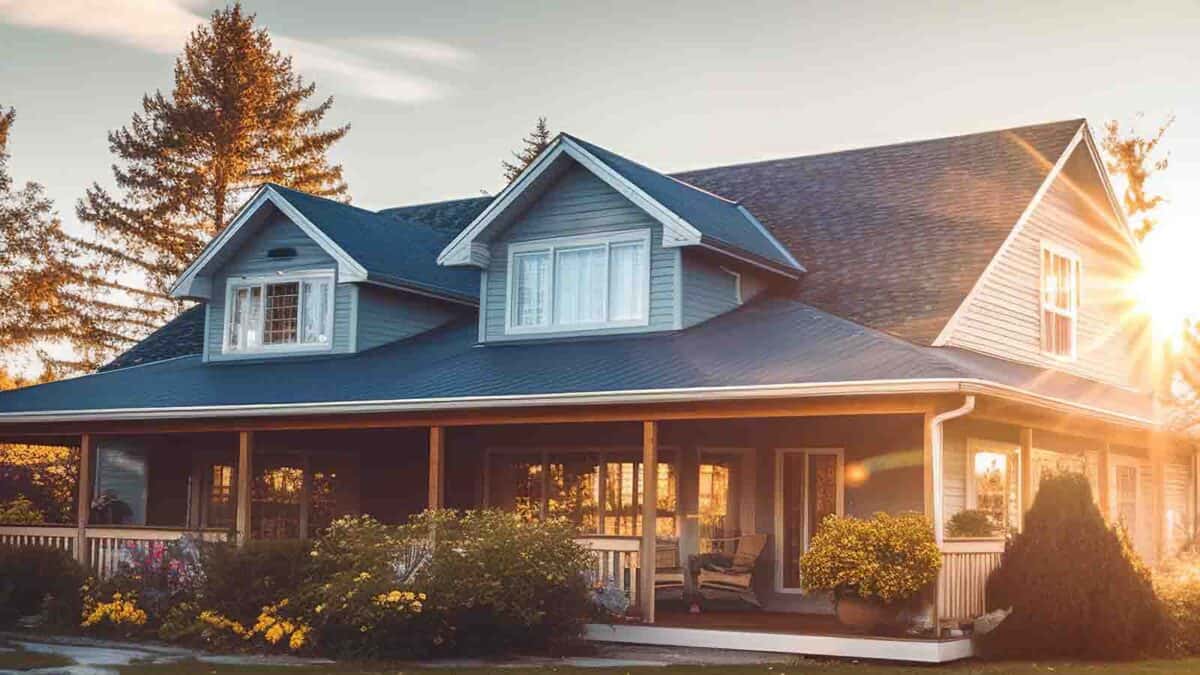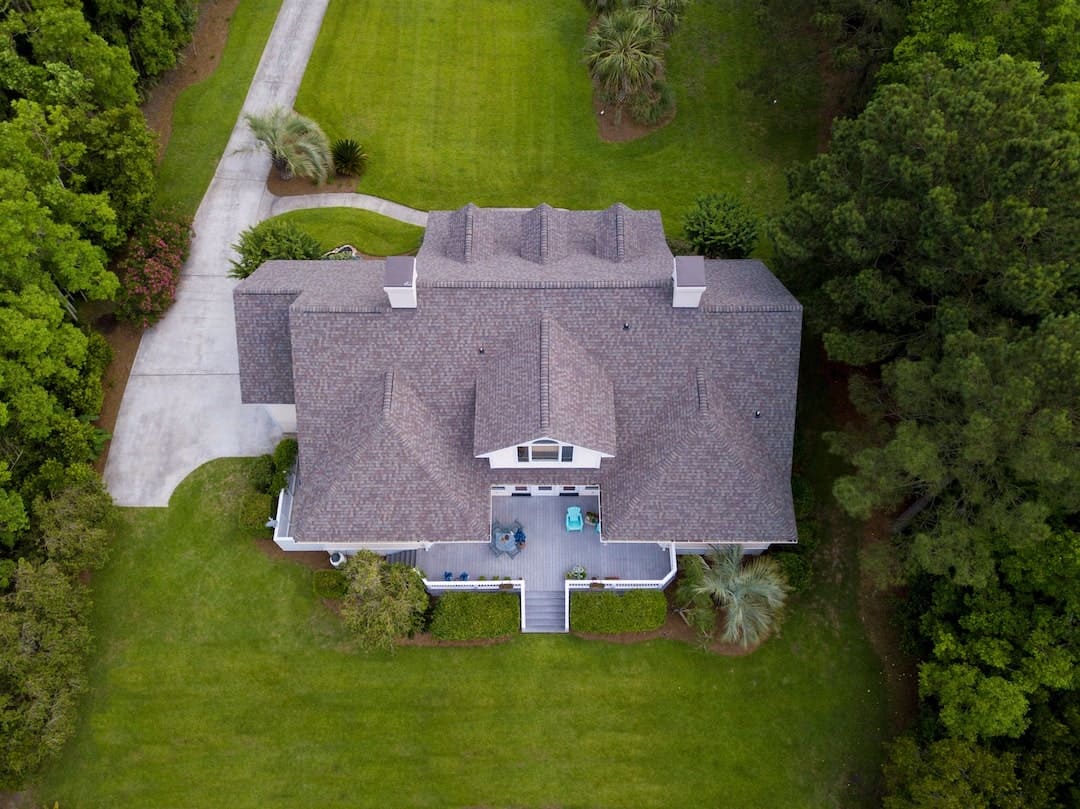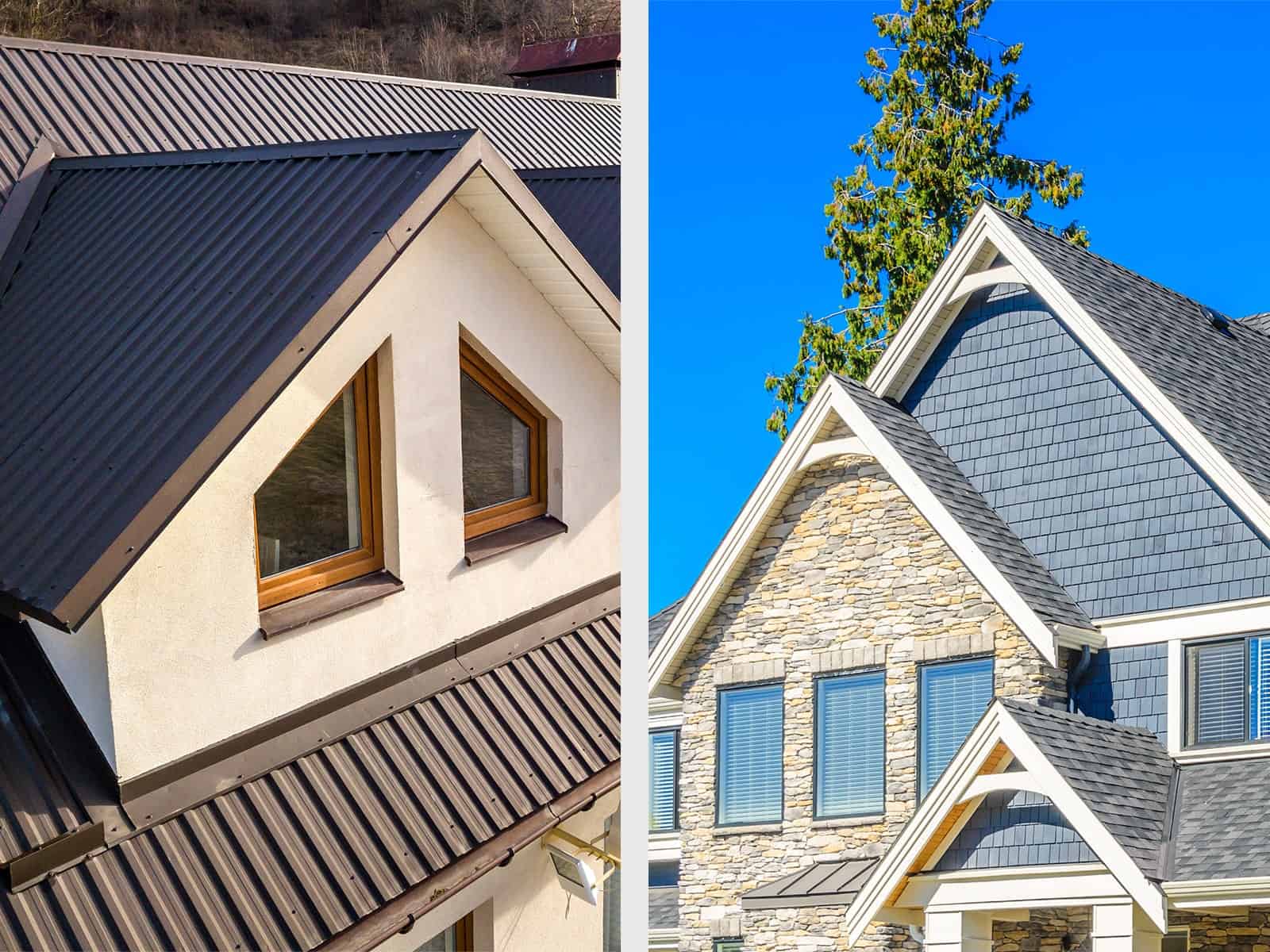Getting multiple estimates for roofing services is essential for informed decision-making and financial prudence. Your home is likely your largest investment, and a quality roofing job is key to its preservation. You can learn a great deal about the type of roofing job you’ll likely be getting from a company depending on how they calculate and present their estimate.
Having multiple quotes is always a good idea, as it allows homeowners to compare the costs and services offered by different contractors. This comparison ensures that you are not overcharged and helps you choose a roofing service that fits your budget while maintaining quality standards.
Additionally, obtaining multiple estimates enables homeowners to assess the scope of work, materials, and warranties provided. It provides an opportunity to gauge the credibility and reliability of the contractors. With this guide, you can accurately and effectively compare these estimates. SlopePro always encourages making a well-informed choice about your roof, just as we take pride in being a reputable, professional company that delivers quality workmanship and value for your investment.
Why Getting Multiple Roofing Estimates is Crucial
Budgeting is a fundamental aspect of any home improvement project, but particularly your roof, as it protects your home’s essential structure and foundation. By obtaining multiple estimates, homeowners can accurately assess the costs involved in your roofing project. This allows you to create a realistic budget, preventing overspending and ensuring that the financial aspect of the project remains manageable. Having a clear budget also helps homeowners prioritize your needs, enabling you to make informed decisions about the materials, labor, and additional services within your financial constraints for roofing.
The value of different perspectives and options cannot be overstated. Each roofing contractor may approach the project differently, suggesting various materials, techniques, and designs based on their expertise and experience. By collecting multiple estimates, homeowners gain access to a diverse range of ideas and options, helping you make choices that align with your aesthetic preferences, energy efficiency goals, and long-term maintenance plans. The variety of perspectives also allows homeowners to evaluate the pros and cons of different options.
Obtaining multiple estimates is essential for risk mitigation. Roofing projects involve significant investments, and there are inherent risks associated with such undertakings. By comparing multiple estimates, homeowners can identify commonalities and discrepancies among the proposals. You can ask questions and seek clarifications about the scope of work, materials used, project timelines, and warranties offered. This due diligence helps in identifying potential red flags or inconsistencies, allowing homeowners to avoid unreliable or inexperienced contractors. Additionally, by selecting a reputable contractor such as SlopePro based on a thorough evaluation, homeowners can mitigate the risks of poor workmanship, project delays, and unexpected costs, ensuring a smoother and more successful roofing project overall, ultimately leading to a roofing project that is not only within budget but also of high quality and tailored to your specific needs and preferences.
Key Components of a Roofing Estimate
A comprehensive roofing estimate typically includes several key components to provide homeowners with a clear understanding of the project scope and associated costs. Here’s an overview of these components:
- Labor Costs: This is an outline of the expenses related to the skilled workforce required for the roofing project. It includes the cost of labor for tasks such as removing the existing roof, installing new materials, flashing, and other roofing-related work. Labor costs can vary based on the complexity of the project, the expertise of the workers, and availability. Licensed, experienced, and high-quality roofing contractors may charge more for labor.
- Material Costs: This number reflects the expenses for all the actual roofing materials needed for the project. It includes costs for shingles, underlayment, decking, flashing, sealants, and any other materials essential for the roofing system. The estimate should specify the type and quality of materials to be used.
- Timeline: A roofing estimate should include an estimated timeline for the project. This timeline outlines the start and completion dates, providing homeowners with a clear expectation of how long the roofing project will take. It may also include details about the stages of the project, helping homeowners understand the workflow and potential disruptions to their daily routine.
- Additional Costs: In addition to labor and materials, there are often additional costs associated with roofing projects. This can include expenses for permits required by local authorities, waste removal (disposing of old roofing materials), and any other miscellaneous costs. These costs are essential to factor into the budget to ensure a truly honest and comprehensive look at what your project will cost.
- Warranty Information: Estimates should specify the roofing warranties provided by both the manufacturer of the roofing materials and the contractor for the labor. Manufacturer warranties cover the performance and longevity of the roofing products, while contractor warranties cover the workmanship. Some contractors, including SlopePro, offer warranties that extend beyond the material warranty, securing your full confidence in their work.
These components should be clearly laid out in your estimate so you may compare different estimates accurately, understand the breakdown of costs, and have clear expectations regarding the project timeline and warranty coverage.
Quality vs. Cost of a Roof Repair or Replacement
The decision between quality and cost is a common dilemma when it comes to roof repair or new roof replacement. Homeowners often face the trade-off between opting for a cheaper solution and investing in higher quality materials that will last longer. This can especially be a decision made when you’ve sustained roof storm damage and must get a repair or replacement as quickly as possible, even if you haven’t saved for it. However, it’s essential to strike a balance between cost and quality, understanding that compromising on quality might save money initially but can lead to significant issues and expenses in the long run.
Materials and workmanship should never be sacrificed in favor of cost-cutting solutions. High-quality roofing materials, such as durable shingles, proper underlayment, and flashing, ensure the longevity and effectiveness of the roof. Quality workmanship, including precise installation and attention to detail, prevents issues like roof leaks and structural damage. Cutting corners on these crucial elements may lead to frequent repairs, reduced energy efficiency, and, in severe cases, the need for premature replacement, all of which can incur higher costs over time.
SlopePro, your reputable roofing service provider in the Richmond, VA and Griffin, GA areas, ensures high quality in both process and materials. In terms of materials, SlopePro uses industry-leading products known for their durability and longevity. These materials are designed to withstand harsh weather conditions, providing homeowners with a roof that can endure the test of time. Additionally, SlopePro prioritizes skilled and experienced craftsmen who adhere to best practices during the installation process. Our attention to detail and commitment to quality workmanship ensure that the roof is installed correctly, minimizing the risk of future issues.
By choosing SlopePro or a similar reputable service provider, homeowners can have confidence in the quality of both materials and work. While the initial cost might be slightly higher than budget options, the long-term benefits, including reduced maintenance costs, fewer repairs, and increased property value, make it a wise investment. By not compromising on quality, homeowners can enjoy a roof that not only looks great but also provides reliable protection for their home, ensuring peace of mind for years to come.
Understanding the Terminology of Roofing Estimates
Understanding common terms found in roofing estimates is crucial for homeowners when reviewing proposals from contractors. Here are explanations for a few key terms:
- Underlayment: Underlayment is a water-resistant or waterproof material installed directly onto the roof deck before shingles or other roofing materials are applied. It acts as an additional layer of protection against moisture infiltration, enhancing the roof’s durability.
- Flashing: Flashing refers to metal strips or pieces used to prevent water from seeping into joints and seams of the roof. It is installed around chimneys, skylights, vents, and other roof penetrations to create a watertight barrier, safeguarding vulnerable areas from leaks.
- Shingles: Shingles are overlapping, individual elements that cover the roof’s surface. They come in various materials such as asphalt, wood, metal, or slate. Asphalt shingles, for instance, are popular due to their affordability, durability, and ease of installation.
- Ridge Vent: A ridge vent is a ventilation strip installed at the peak of a sloped roof, allowing warm, humid air to escape from the attic. It promotes proper air circulation, reducing heat buildup and moisture, which can prolong the life of the roof and prevent damage.
- Soffit and Fascia: Soffit is the exposed surface beneath the overhanging section of the roof eaves, while fascia is the vertical band running along the roof’s edge. Soffit provides ventilation to the attic space, and fascia serves as a finishing trim to protect the roof’s edges from weather damage.
- Decking: Roof decking, often made of plywood or oriented strand board (OSB), forms the structural base of the roof. It is the surface to which roofing materials are directly applied, providing stability and support for the roof covering.
- Valley: A valley is the V-shaped metal channel formed where two sloping roof planes meet. It directs rainwater and snowmelt towards the gutters, preventing water accumulation and potential leaks in the roof’s junctions.
Now that you’re adequately prepared to review your estimate itself, let’s discuss different signs to watch out for when interacting with potential contractors.
Signs of a Reputable Roofing Company
A reputable roofing company will exhibit several key signs that can help you build confidence in them. First and foremost, licenses and certifications are essential. A trustworthy roofing company, like SlopePro, holds the necessary licenses and certifications, demonstrating compliance with industry standards and regulations. These credentials assure customers that the company is qualified and meets the legal requirements to perform roofing services.
Customer reviews and testimonials also play a vital role in establishing credibility. Positive feedback from previous clients showcases the company’s competence and customer satisfaction. SlopePro maintains an excellent reputation, reflecting our dedication to quality work and customer service.
Transparency in the estimate is another hallmark of a reputable roofing company. Clear, detailed estimates provide homeowners with a thorough understanding of the project scope, costs, and materials involved. SlopePro uses a 12-Point Forensic Inspection of your roof to build our estimates, covering all aspects of your roof that need repair. By breaking down the costs and explaining the work to be done, we empower customers to make informed decisions.
Professionalism in communication and appearance is equally crucial. A reputable roofing company communicates clearly and professionally, addressing customer inquiries promptly and courteously. Additionally, their team maintains a professional appearance, reflecting the company’s commitment to excellence. SlopePro’s courteous and experienced staff instill confidence in customers, creating a positive experience from start to finish.
SlopePro stands out above others as a reputable roofing company that’s always a reliable choice for roofing needs.
Red Flags to Watch Out For
When considering hiring a roofing company, it’s essential to watch out for certain red flags that could indicate potential issues or scams:
- Suspiciously Low Costs: If a roofing company offers an estimate significantly lower than others, it could be a red flag. Unrealistically low prices may indicate the use of subpar materials, shoddy workmanship, or hidden costs that might emerge later in the project. Reputable companies offer competitive pricing based on industry standards and quality materials, so extremely low costs should be approached with caution.
- Vagueness or Lack of Detail in the Estimate: A detailed estimate is crucial for understanding the scope of work, materials used, and costs involved. If a roofing company provides a vague or incomplete estimate without specific details, it can lead to misunderstandings and unexpected expenses during the project. A reputable company will provide a comprehensive, itemized estimate outlining all aspects of the roofing job.
- Pressure Tactics: Be wary of roofing companies that use high-pressure sales tactics to push you into making a quick decision. Reputable companies provide detailed information, answer your questions, and give you the time you need to make an informed choice. Pressure tactics can indicate a lack of professionalism and transparency.
- No Proof of Insurance or Licensing: It’s crucial to work with a roofing company that is properly licensed and insured. A lack of proof of licensing or insurance could mean the company is not qualified or may not have adequate coverage in case of accidents or damages during the project. Always ask for proof of licensing and insurance before hiring a roofing contractor to protect yourself from liability.
A trustworthy roofing contractor is the only person you should trust with a job as important as roof repair or replacement. The safety and security of your home is paramount, and the cost of the project is likely to reflect that.
Questions to Ask the Roofing Company
To ensure a positive experience, you should cultivate a relationship of open and honest communication with your roofing company throughout the course of the project. Even after hiring them to complete the job, you should be involved in the process, asking questions and watching over things. This ensures you’re not surprised by improper work that costs more to fix, or even better, paying for work you can trust in the quality of in the first place. Here are some key questions to consider:
- Experience and Past Projects: Inquire about the company’s experience in the roofing industry and ask for examples of past projects. Request references or photos of completed work to assess the quality of their craftsmanship and the variety of roofing projects they have handled.
- Type of Materials Used: Discuss the materials the company plans to use for your roofing project. Inquire about the quality, durability, and warranty of the materials. Understanding the materials used is crucial for the longevity and performance of your roof.
- Payment Schedules: Clarify the payment structure. Ask about the initial deposit, progress payments, and the final payment upon completion. Make sure you have a clear understanding of the payment schedule to avoid misunderstandings during the project.
- Cleanup Procedures: Discuss the cleanup process after the roofing work is completed. Ask how they plan to handle debris removal, ensuring your property is left clean and safe. A reputable company will have a thorough cleanup plan to maintain the aesthetics of your home.
- Post-Completion Service and Warranty: Inquire about the post-completion service and the warranty provided. Ask about the duration and specifics of the warranty, covering both materials and workmanship. Additionally, understand the procedures for warranty claims and the company’s responsiveness to post-installation issues.
Asking these questions not only helps you gauge the company’s expertise and professionalism but also provides you with a clear understanding of the project details.
Why Choose SlopePro
SlopePro remains committed to quality and customer satisfaction. Not only do we offer the longest warranties available in the roofing industry, we offer free, comprehensive roofing inspections to build your confidence in our honesty and accuracy when it comes to your important roofing project.
With quality materials, experienced workmanship, and communication you can count on, SlopePro is the premier choice for an expert roofing contractor in the Richmond and Atlanta areas. We’ll work with you to make decisions about your project that stay within your budget, all without compromising the quality of work. Finally, our lifetime guarantee is an added layer of comfort for your family as you undergo the large task of repairing or replacing your roof.
Conclusion
The most important takeaway from this blog is that you should always obtain multiple roofing estimates to compare costs, assess quality, and negotiate effectively. Consider concrete factors like materials, workmanship, warranties, and customer reviews when selecting a roofing contractor, just as you should analyze the contractor itself, including licenses, certifications, transparent estimates, professionalism, and positive customer feedback. By asking questions and watching out for red flags, you can make well-informed decisions when choosing a roofing contractor.
SlopePro is the company of choice for homeowners because of our high standards when it comes to client satisfaction. From warranties to free inspections to simply answering all your small questions about your roofing project with intelligent and honest answers, SlopePro can make your project feel like a breeze.
If you’re currently facing the possibility of a roofing project, get in touch with SlopePro for a comprehensive and transparent roofing estimate you can count on. Call us at 804-251-3006 or contact us online today.




